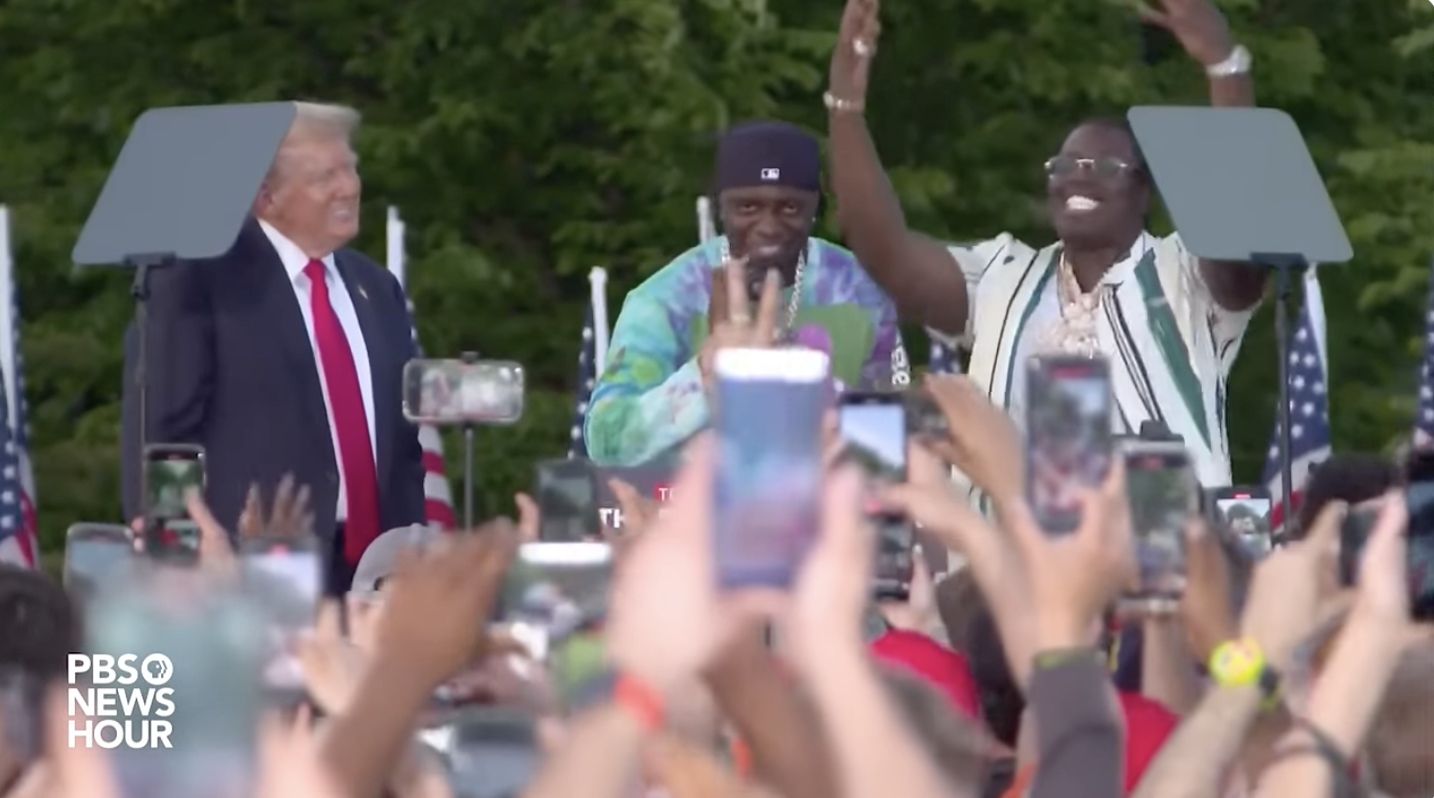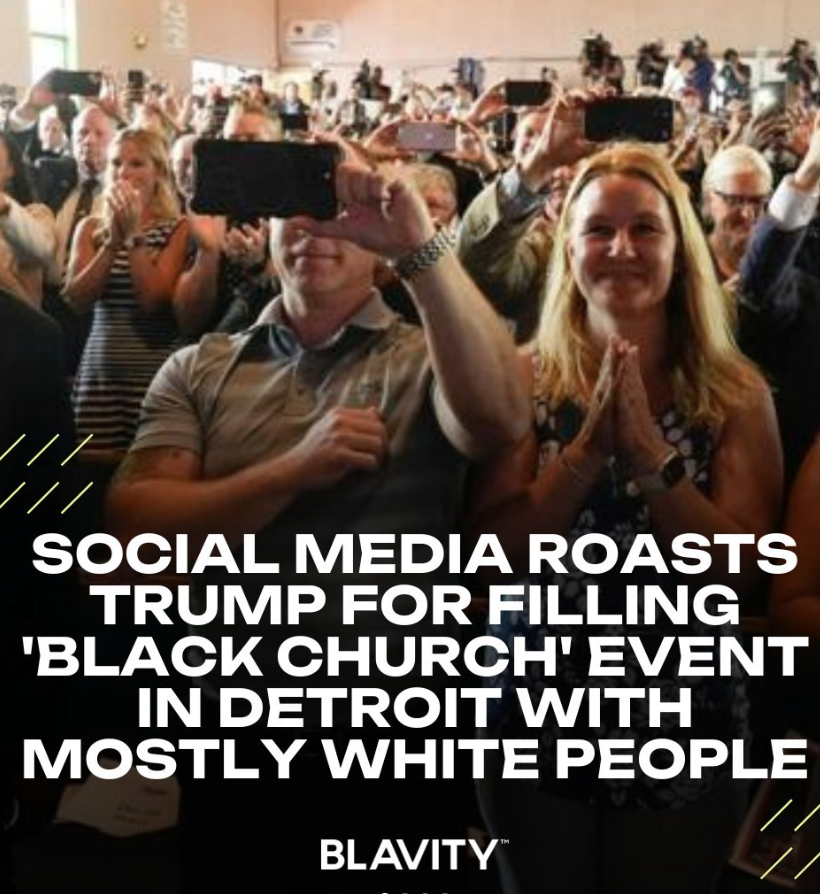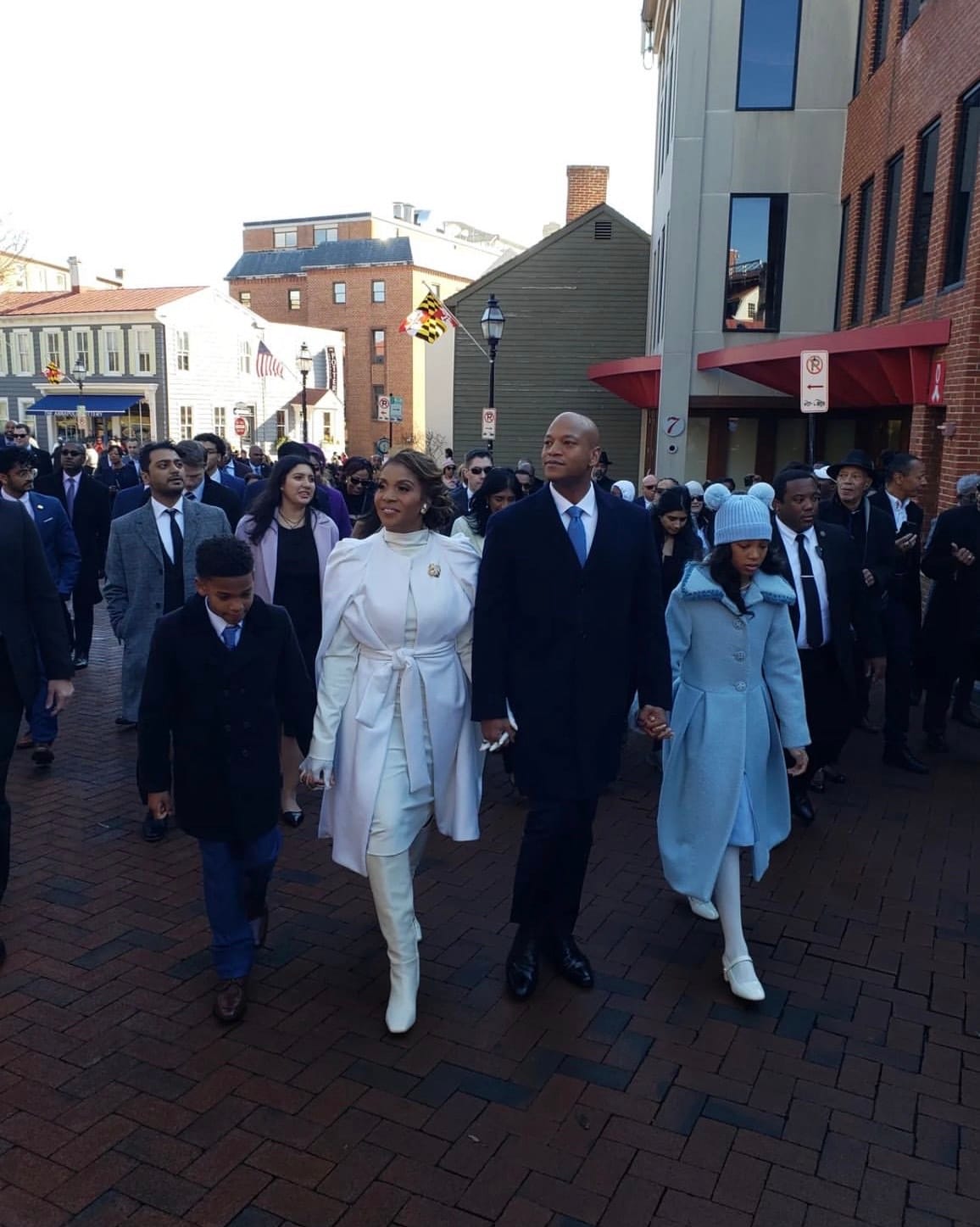
If some pollsters and journalists are to be believed, Biden's list of problems in 2024 includes declining support among Black voters, most especially younger Black male voters.
In a June 15 article for The Hill headlined, "Biden, Trump step up outreach to Black men," Cheyanne M. Daniels wrote: "some observers say Black men could decide the presidential winner in November."
On July 1, USA Today's Phillip M. Bailey wrote that "the gender divide is where Trump could make a dent." He notes that one Pennsylvania poll finds 16% of Black men supporting Trump vs. only 6% of Black women.
Susan Milligan, writing for The New Republic on June 24 is not so sure. "The narrative of Blacks and Hispanics fleeing Biden (is) particularly tantalizing," she writes. But her analysis is that: "Yes, the president has work to do with Black and Hispanic voters, but no, they’re not flocking to Donald Trump."
Trump's "outreach" to Blacks usually gets treated as serious news by mainstream media, while being simultaneously ridiculed on social media by users who point out that Trump's Black events are mostly filled with white people and out-of-towners and that the only pictures that show him "acting normal" with Black people are all AI-generated.

Writing for Blavity, Christopher Nolan noted that Russ McNamara, a reporter who posted several pictures from a Trump event in a Detroit church, said that “of the 8 Black Trump voters I talked to, just one was from Detroit and zero were congregants.”
To get a perspective from someone who's not a pollster or a journalist, I reached out to Jerrell Gray, an interdisciplinary urbanist, community organizer, and public servant, currently working for New York State Homes and Community Renewal.

Jerrell's commitment to serving urban communities is deeply rooted in his upbringing by Grenadian and Guyanese immigrants in the Central Brooklyn neighborhood of Flatbush and he's leveraging these experiences to propel equitable community development, enhance the accessibility and efficiency of local governments, and ultimately dedicate his career to elevating the well-being of New York City residents.
He's also an active community organizer with Strategy for Black Lives, a volunteer with the Hope Reichbach Fund Social Justice Fellowship, and a board member of Brooklyn Community Board 14.
Jerrell holds a Bachelor of Arts in Urban Studies and Political Science from the University of Rochester and a Master of Urban Planning from NYU Wagner.
Q&A with Jerrell Gray
Pollsters are telling us that there's a potential shift toward favoring Trump over Biden among young Black voters, particularly males. Do you think this is a real trend that will persist through November and translate into actual votes?
JG: I don't perceive this as a significant trend based on my observations within my groups or circles. I believe there are many Black voters who may choose not to vote or opt for a third-party candidate.
What do you think Trump's appeal to young Black voters might be—is there anything in his policies or is it personality-based?
JG: I haven't personally grasped Trump's appeal to young Black voters as I haven't engaged with enough people to gain their perspective. I believe Biden's cognitive decline and Black voter's widespread distrust of government, coupled with Trump's (appearing) directness and nontraditional political approach, may contribute to his appeal as someone closer to the common man.
What criticisms do young Black men have about the Democratic Party or Biden that push them towards Trump?
JG: I believe young Black men perceive the Democratic Party as disingenuous and somewhat elitist. While I personally acknowledge the Biden administration's significant policy achievements for our country, these successes often seem implicit and lack direct communication to the average person. It FEELS insincere when the economy is touted as strong while housing and grocery costs rise. It FEELS disingenuous when you claim reduced unemployment when many remain homeless or struggle with inadequate wages. Policy intricacies mean little if everyday impacts aren't clear or effectively communicated.
To what extent do economic issues, like job opportunities and inflation, influence the support for Trump among young Black men?
JG: This is a crucial factor that could significantly influence young Black men. As a historically disenfranchised and economically oppressed demographic, bearing the responsibility to provide for Black families, they are particularly impacted by rising inflation, gas prices, insurance rates, mortgage costs, and housing expenses. They prioritize tangible economic realities over high-level, elitist economic metrics like GDP, unemployment rates, and the stock market. Additionally, perceptions of the handling of the migrant influxes can affect their views, as it can feel unjust when new groups receive resources perceived as overdue. Trump's strategy of fear-mongering and exploiting these sentiments could potentially sway young Black men in these circumstances
How aware are young Black Trump supporters of Trump's history of racist remarks and opposition to movements like Black Lives Matter?
JG: I think many people aren't fully aware of Trump's history of racist remarks, but more importantly, his discriminatory practices that surface in his various business ventures. Personally, I gained a deeper understanding of the extent of Trump's racism from reading Samuel Stein's book, 'Capital City,' which provides a comprehensive historical perspective on how Trump's family amassed wealth and his housing policies during his presidency. Additionally, I believe Black Trump supporters may prioritize concerns about these financial discriminatory practices over mere racist 'rhetoric.'
How significant is the role of social media in shaping political views among young—and especially first-time—Black voters and what types of content are most influential?
JG: Social media is scary. I believe the abundance of inaccurate and fear-mongering propaganda has already shaped, and will continue to shape, the political views of young Black voters. Misrepresentation of our border situation, the status of migrants in the country, and economic impacts remains highly influential.
What should Biden and Harris do to connect better with young Black voters between now and Election Day? What messages are most effective? Do they need better surrogates to deliver their messaging?
JG: In these final months, Biden and Harris should highlight specific accomplishments of their administration that resonate most with everyday Americans. They should emphasize achievements like increased Black homeownership, support for Black entrepreneurship, tax benefits that disproportionately benefit Black communities, improvements in health insurance access, restorative justice initiatives for marijuana offenses, and reforms in criminal justice. They should also showcase how their major policy victories such as the Bipartisan Infrastructure Law, Child Tax Credit, and measures to reduce inflation have positively impacted ordinary people.
Rather than being the sole advocates, they should elevate key stakeholders. For instance, they could introduce new, prominent Black entrepreneurs who have directly benefited from their policies. They should physically demonstrate, where possible, the upgraded infrastructure projects across every state funded by new infrastructure dollars. Additionally, they should highlight affluent Black neighborhoods that have thrived in recent years.To effectively communicate these achievements to our communities, they must back their data with real-life experiences that resonate with people's daily lives.
How do you see the political influence of young Black men evolving, and what do you think are the most important issues they want addressed by future leaders?
JG: As a young Black man, I yearn for inspirational leadership. Having recently completed Malcolm X's autobiography, I see a leadership vacuum where current leaders lack aspiration and inspiration. Malcolm X's journey resonated deeply with me not only because of his character but also because of his ambitious goals. Leaders should be visionary, inspiring, and provide clear direction, then assemble teams to achieve these large goals.

I've begun to witness this in my fraternity brother, Governor Wes Moore of Maryland. A former football player and veteran with a beautiful Black family, he has authored books and embodies leadership in his state. Governor Moore consistently supports sports teams, engages in community service, and effectively implements policies. Recently, he pardoned over 170,000 cannabis convictions and announced updates to Maryland's Red Line, improving transportation options and connecting many Black and impoverished residents to job opportunities in Baltimore. Overall, I believe young Black men will continuously care about economic opportunity, the ability to own a home, addressing some of the systemic issues that have been placed on them in this country and finally getting the respect they deserve as active participants in American society.
Follow Jerrell Gray:
On Instagram: @amplifeyed / On X: @JerrellKGray
Follow Strategy for Black Lives:
On Instagram: @strategyforblacklives / On X: @itsastrategy
Thanks for reading! While paid subscriptions (billed to TLD Media LLC) and one-time tips are always welcome, all content to this ad-free newsletter is free, so subscribe for $0 and you won’t miss anything. And feel free to share this content knowing there’s never a paywall!
Subscribe to Unprecedented
Subscribe to the newsletter and unlock access to member-only content.